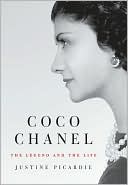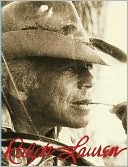Desert Flower: The Extraordinary Journey of a Desert Nomad
Waris Dirie ran away from her oppressive life in the African desert when she was barely in her teens, illiterate and impoverished, with nothing to her name but a tattered shawl. She traveled alone across the dangerous Somali desert to Mogadishu—the first leg of a remarkable journey that would take her to London, where she worked as a house servant; then to nearly every corner of the globe as an internationally renowned fashion model; and ultimately to New York City, where she became a human...
Search in google:
Waris Dirie leads a double life-by day, she is an international supermodel and human rights ambassador for the United Nations; by night, she dreams of the simplicity of life in her native Somalia and the family she was forced to leave behind. Desert Flower, her intimate and inspiring memoir, is a must-read for anyone who has ever wondered about the beauty of African life, the chaotic existence of a supermodel, or the joys of new motherhood. Waris was born into a traditional Somali family, desert nomads who engaged in such ancient and antiquated customs as genital mutilation and arranged marriage. At twelve, she fled an arranged marriage to an old man and traveled alone across the dangerous Somali desert to Mogadishu -- the first leg of an emotional journey that would take her to London as a house servant, around the world as a fashion model, and eventually to America, where she would find peace in motherhood and humanitarian work for the U.N. Today, as Special Ambassador for the U.N., she travels the world speaking out against the barbaric practice of female genital mutilation, promoting women's reproductive rights, and educating people about the Africa she fled -- but still deeply loves. Desert Flower will be published simultaneously in eleven languages throughout the world and is currently being produced as a feature film by Rocket Pictures UK.Elton John"Waris's story is one of remarkable courage. From the deserts of Somalia to the world of high fashion, she battles against oppression and emerges a real champion. She is the most beautiful inspiration to anyone."
Desert FlowerChapter OneRunning Away\ A slight sound woke me, and when I opened my eyes, I was staring into the face of a lion. Riveted awake, my eyes stretched wide — very wide — as if to expand enough to contain the animal in front of me. I tried to stand up, but I hadn't eaten for several days, so my weak legs wobbled and folded beneath me. Collapsing, I slumped back against the tree where I had been resting, sheltered from the African desert sun that becomes so merciless at noon. I quietly leaned my head back and closed my eyes, and felt the rough bark of the tree pressing into my skull. The lion was so near I could smell his musty scent in the hot air. I spoke to Allah: "It's the end for me, my God. Please take me now."\ My long journey across the desert had come to an end. I had no protection, no weapon. Nor the strength to run. Even under the best of circumstances, I knew I couldn't beat the lion up the tree, because like all cats, lions with their strong claws are excellent climbers. By the time I got halfway up — Boom — one swipe and I'd be gone. Without any fear I opened my eyes again and said to the lion, "Come and get me. I'm ready for you."\ He was a beautiful male with a golden mane and a long tail switching back and forth to flick away flies. He was five or six years old, young and healthy. I knew he could crush me instantly; he was the king. All my life I'd watched those paws take down wildebeest and zebras weighing hundreds of pounds more than me.\ The lion stared at me and slowly blinked his honey-colored eyes. My brown eyes stared back, locked on his. He looked away. "Go on. Take me now." He lookedat me again, then looked away. He licked his lips and sat down on his haunches. Then the lion rose and paced back and forth in front of me, sexily, elegantly. Finally, he turned and walked away, no doubt deciding that I had so little flesh on my bones, I wasn't worth eating. He strode across the desert until his tawny-colored fur was lost against the sand.\ When I realized he was not going to kill me, I gave no sigh of relief, because I hadn't been afraid. I'd been ready to die. But evidently God, who has always been my best friend, had something else planned, some reason to keep me alive. I said, "What is it? Take me — direct me," and struggled to my feet.\ This nightmare journey began because I was running away from my father. I was about thirteen at the time, and living with my family, a tribe of nomads in the Somalian desert, when my father announced he had arranged my marriage to an old man. Knowing I had to act fast or suddenly one day my new husband would come to get me, I told my mother I wanted to run away. My plan was to find my aunt, my mother's sister, who lived in Mogadishu, the capital of Somalia. Of course I had never been to Mogadishuor any other city for that matter. Nor had I ever met my aunt. But with the optimism of a child, I felt somehow things would magically work out.\ While my father and the rest of the family were still sleeping, my mother woke me and said, "Go now." I looked around for something to grab, something to take, but there was nothing, no bottle of water, no jar of milk, no basket of food. So, barefoot, and wearing only a scarf draped around me, I ran off into the black desert night.\ I didn't know which direction led to Mogadishu, so I just ran. Slowly at first, because I couldn't see; I stumbled along, tripping over roots. Finally, I decided to just sit down because snakes are everywhere in Africa, and I was terrified of snakes. Each root I stepped on I imagined to be the back of a spitting cobra. I sat watching the sky gradually lighten. Even before the sun came up — whoosh — I was off like a gazelle. I ran and 1 ran and I ran for hours.\ By midday I'd traveled deep into the red sand, and deep into my own thoughts. Where in the hell was I going? I wondered. I didn't even know what direction I was heading in. The landscape stretched on to eternity, the sand broken only occasionally by an acacia or thorn tree; I could see for miles and miles. Hungry, thirsty, and tired, I slowed down and walked. Strolling along in a bored daze, I wondered where my new life would take me. What was going to happen next?\ As I pondered these questions, I thought I heard a voice: "W-a-r-i-s...W-a-r-i-s..." My father was calling me! Whipping around in circles, I looked for him, but saw no one. Maybe I was imagining things, I thought. "W-a-r-i-s...W-a-r-i-s..." the voice echoed all around me. The tone was pleading, but I was frightened all the same. If he caught me, he would surely take me back and make me marry that man, and probably beat me besides. I was not hearing things; it was my father, and he was getting closer. In earnest now, I started to run as fast as I could. Even though I had gotten a head start of several hours, Papa had caught up with me. As I later realized, he'd tracked me down by following my footprints through the sand.\ My father was too old to catch me-so I had thought-because I was young and fast. To my childish thinking, he was an old man....Desert Flower. Copyright (c) by Waris Dirie . Reprinted by permission of HarperCollins Publishers, Inc. All rights reserved. Available now wherever books are sold.
\ Daphne UvillerStraightforward, gruesome and insightful, Dirie's Desert Flower is remarkable. -- Time Out New York\ \ \ \ \ Elton John"Waris's story is one of remarkable courage. From the deserts of Somalia to the world of high fashion, she battles against oppression and emerges a real champion. She is the most beautiful inspiration to anyone."\ \ \ Nafis Sadik"Waris Dirie is a remarkable and courageous person. Her story is an inspiration. Not only did Waris overcome obstacles that would defeat most people, but as UNFPA Special Ambassador for the Elimination of Female Genital Mutilation, she will serve as a leader in the struggle to end all forms of discrimination against women."\ \ \ \ \ Village Voice"Succeeds not just as a polemic against [female genital mutilation] and its attendant horrors, but as a classic chronicle of immigrant hardship and triumph."\ \ \ \ \ Publishers WeeklyJoining the current rage for model memoirs...is Dirie, a native of Somalia, who has for more than a decade stalked the world's catwalks and appeared in numerous glossy magazines. This, however, is no fluff-job dictated into a tape recorder on transatlantic flights, then recomposed by a hired gun back in New York. Rather, it is a striking account of a personal odyssey that began in the Somali desert, where Dirie grew up without shoes, living amid nomadic tribes and tyrannized by patriarchal strictures. As a pubescent girl, Dirie was circumcised--a procedure described here in chilling detail--before escaping an arranged marriage to stay with an aunt in Mogadishu. Landing a job as a house servant in London, Dirie struggled to launch a modeling career while dodging British immigration authorities and the dreadful results of marriages of convenience. At the end of this affecting and at times very entertaining book, Dirie's metamorphosis from desert nomad into jetsetting nomad culminates in a post as a human rights ambassador to the UN, where, these days, Dirie campaigns for the eradication of female circumcision and women's rights around the globe. It's easy to forget that Dirie's memoir is a book about someone whose success has come from posing for the camera. Indeed, it is Dirie's remarkable lack of narcissism or entitlement that makes her so captivating a raconteur.\ \ \ \ \ Library JournalAs a special ambassador to the United Nations, Somalian supermodel Dirie speaks out against the custom of genital mutilation, a "barbaric rite" that she underwent at age five. In this memoir, she "provides a fascinating glimpse of her separate lives--camel herder, supermodel, human rights activist--and manages to weave threads of drama, humor, and courage into each." LJ 11/1/98\ \ \ \ \ Raye Snover....[G]ives a powerful inside view into the hardships of the nomadic Somali culture, where life is centered around the daily search for food and water, and young girls undergo genital cutting for arranged marriages. -- The New York Times Book Reviews\ \ \ \ \ Kirkus ReviewsThe tale of a courageous woman's struggles to come to terms with her Somali childhood, including her experience of female genital mutilation (FGM). Dirie ran away from home at age 13 to escape from an arranged marriage to a 60-year-old man. By age five, however, she had been introduced to FGM, the practice that would ensure her marriageability (and thus her marketability) in Somali culture. While Dirie's beloved mother held her down, a local "gypsy woman" used a dirty razor blade to scrape away at Dirie's external sexual organs and then sewed her up again, leaving only tiny holes to allow for urination and menstruation to occur in a compromised fashion. After fleeing her family, Dirie worked as a housemaid for a well-placed uncle in London, where she was "discovered" as a model and embarked on a successful career in fashion. She then underwent surgery to unstitch her vagina (in an unforgettable detail, she explains how amazing it felt to urinate in less than ten minutes and menstruate in less than ten days). More recently she's become an international UN ambassador on the issue of FGM after sharing her personal story with the magazine Marie Claire and on '20/20'. And indeed, the issue could hardly have won a better spokeswoman. Her book offers extraordinary firsthand insight into FGM, thought to be performed now on more than two million girls a year. It is also a well-told and truly engaging autobiography with an old-fashioned, Algeresque appeal: obscure African camel-tender becomes internationally admired (and vindicated) high-life heroine. On all counts, an outstandingly dramatic and moving tale. \ \








